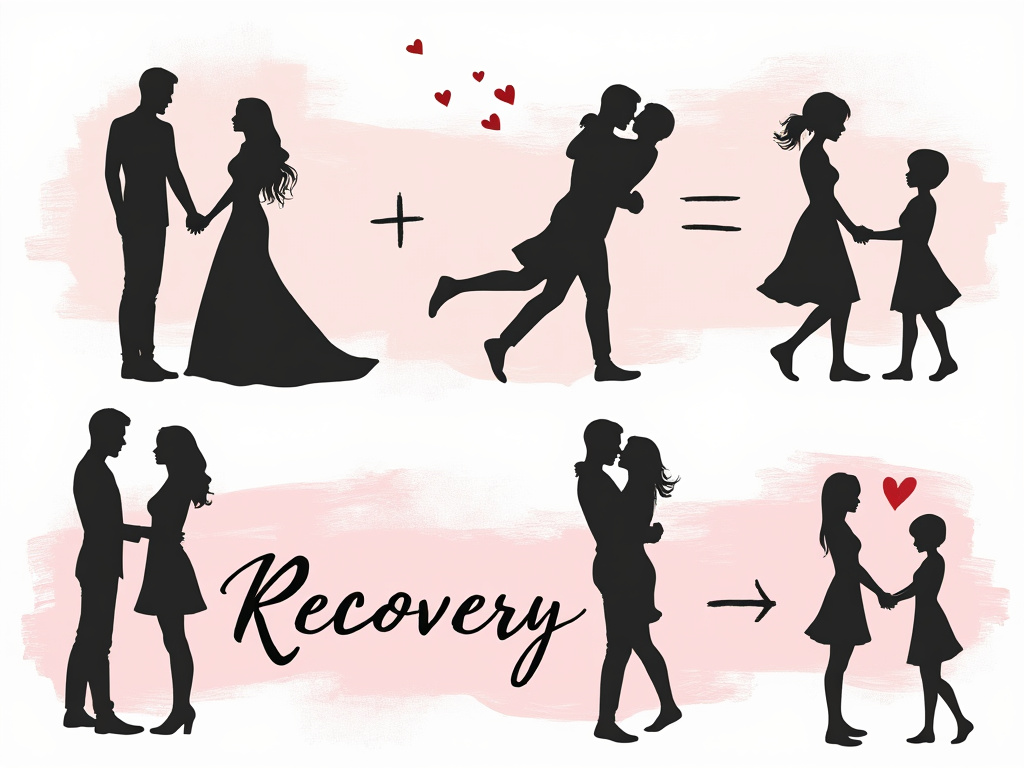
Dating After Trauma: Assessing If You’re Ready for a Healthy Relationship
Reading time: 12 minutes
Ever wonder if you’re truly ready to date again after experiencing trauma? You’re asking the right questions. Navigating love after difficult experiences requires courage, self-awareness, and strategic preparation. Let’s explore how to assess your readiness and build foundations for meaningful connections.
Table of Contents
- Understanding Trauma’s Impact on Relationships
- Self-Assessment: Are You Ready to Date?
- Key Healing Milestones
- Building Healthy Relationship Foundations
- Practical Dating Strategies Post-Trauma
- Recognizing Red Flags and Healthy Patterns
- Your Healing Roadmap Forward
- Frequently Asked Questions
Understanding Trauma’s Impact on Relationships
Trauma fundamentally alters how we perceive safety, trust, and intimacy. According to the National Center for PTSD, approximately 70% of adults experience at least one traumatic event in their lifetime, making post-trauma dating a common yet deeply personal journey.
Dr. Judith Herman, trauma specialist and author of “Trauma and Recovery,” explains: “Recovery from trauma involves three stages: safety and stabilization, remembrance and mourning, and reconnection with community and relationships.”
How Trauma Affects Dating Patterns
Trauma can manifest in relationships through various patterns:
- Hypervigilance: Constantly scanning for potential threats or red flags
- Emotional numbing: Difficulty accessing or expressing feelings
- Attachment disruption: Struggling with trust and emotional intimacy
- Boundary confusion: Either rigid walls or complete openness
The Neuroscience of Healing
Research shows that trauma impacts the brain’s fear center (amygdala) and memory processing (hippocampus). However, neuroplasticity means these patterns can change with proper support and time. Understanding this gives hope and direction for healing.
Self-Assessment: Are You Ready to Date?
Honest self-reflection is crucial before entering the dating world. Here’s a comprehensive readiness assessment framework:
Readiness Assessment Visualization
Rate yourself on these key areas (1-10 scale):
7/10
5/10
8/10
4/10
7.5/10
Critical Readiness Questions
Ask yourself these essential questions:
- Can you regulate your emotions independently? You should be able to self-soothe during difficult moments without relying solely on a partner.
- Do you have a support system beyond dating? Friends, family, or therapy provide crucial stability.
- Can you identify and communicate your needs? Healthy relationships require clear communication about boundaries and expectations.
- Are you dating from choice or desperation? Dating should enhance your life, not fill a void or escape pain.
Key Healing Milestones
Healing isn’t linear, but certain milestones indicate readiness for healthy relationships:
| Milestone | Description | Indicators | Timeline |
|---|---|---|---|
| Safety Establishment | Creating physical and emotional safety | Stable living situation, basic self-care | 3-6 months |
| Trauma Processing | Working through traumatic memories | Reduced flashbacks, improved sleep | 6-18 months |
| Identity Reconstruction | Rebuilding sense of self | Clear values, goals, interests | 12-24 months |
| Relationship Skills | Developing healthy connection patterns | Trust building, communication skills | 18+ months |
| Integration | Incorporating healing into daily life | Consistent emotional regulation | 2+ years |
Note: These timelines are estimates. Individual healing journeys vary significantly based on trauma type, support systems, and personal resilience.
Building Healthy Relationship Foundations ️
Before dating, establish these foundational elements:
1. Therapeutic Support System
Professional guidance is invaluable. Research indicates that trauma-informed therapy increases relationship success rates by 60% among trauma survivors. Consider:
- EMDR therapy: Effective for processing traumatic memories
- Cognitive Behavioral Therapy (CBT): Helps reframe negative thought patterns
- Somatic therapy: Addresses trauma stored in the body
2. Boundary Development
Case Study: Sarah’s Boundary Journey
Sarah, 32, survived an abusive relationship and initially struggled with boundaries. Through therapy, she learned to identify her limits and communicate them clearly. She practiced with friends first, saying no to social events when feeling overwhelmed. This skill proved invaluable when she began dating again, allowing her to pace relationships appropriately.
3. Self-Care Rituals
Consistent self-care demonstrates self-respect and creates stability:
- Physical care: Regular exercise, nutrition, sleep hygiene
- Emotional care: Journaling, meditation, creative expression
- Social care: Maintaining friendships, community involvement
- Spiritual care: Practices that connect you to meaning and purpose
Practical Dating Strategies Post-Trauma
When you’ve assessed your readiness and built strong foundations, these strategies support healthy dating:
Start with Low-Stakes Connections
Begin with casual friendships or group activities. This allows you to practice social skills without romantic pressure. Research shows that gradual exposure reduces anxiety and builds confidence more effectively than jumping into intense romantic situations.
Communicate Your Needs Early
Example Script:
“I want to be upfront that I move slowly in relationships. I’ve learned this helps me build genuine connections. I hope you can respect that pace.”
Create Safety Protocols
Develop practical safety measures:
- Meet in public places for initial dates
- Share your location with trusted friends
- Set time limits for early dates
- Have an exit strategy if you feel uncomfortable
Practice Emotional Check-ins
Regular self-assessment prevents overwhelm:
- Before dates: “How am I feeling? What do I need today?”
- During dates: “Am I comfortable? Do I feel respected?”
- After dates: “What went well? What felt challenging?”
Recognizing Red Flags and Healthy Patterns
Trauma can affect your ability to recognize unhealthy dynamics. Here’s what to watch for:
Red Flags to Avoid
- Love bombing: Excessive attention and gifts early on
- Boundary testing: Pushing limits you’ve clearly communicated
- Isolation attempts: Discouraging your friendships or activities
- Emotional volatility: Extreme mood swings or unpredictable reactions
- Victim blaming: Making you responsible for their emotions or actions
Green Flags to Embrace
- Consistent communication: Reliable and respectful contact
- Boundary respect: Honoring your limits without argument
- Emotional stability: Predictable and appropriate emotional responses
- Growth mindset: Willingness to work through challenges together
- Support system: Healthy relationships with friends and family
Case Study: Michael’s Recognition Journey
Michael, 28, initially found himself drawn to partners who were emotionally unavailable, mirroring his traumatic childhood dynamics. Through therapy, he learned to recognize this pattern and actively chose to date people who demonstrated consistent emotional availability. His current relationship of two years is characterized by mutual respect and healthy communication.
Your Healing Roadmap Forward ️
Ready to take the next steps in your healing journey? Here’s your actionable roadmap:
Immediate Actions (This Week)
- Complete the readiness assessment: Honestly rate yourself on the key areas
- Identify your support system: List three people you can talk to about your dating journey
- Schedule therapeutic support: Book a session with a trauma-informed therapist
Short-term Goals (Next 3 Months)
- Establish daily self-care routines: Implement at least three consistent practices
- Practice boundary setting: Start with low-stakes situations like declining social invitations
- Build social connections: Join groups or activities that align with your interests
Medium-term Milestones (6-12 Months)
- Develop emotional regulation skills: Learn and practice techniques for managing triggers
- Create your dating safety protocol: Establish clear guidelines for healthy dating
- Begin casual dating: Start with low-pressure social interactions
Long-term Vision (1+ Years)
- Build healthy relationship patterns: Focus on mutual respect and communication
- Integrate healing into daily life: Make trauma recovery part of your ongoing wellness
- Support others: Consider sharing your journey to help other survivors
Remember, healing isn’t about forgetting your past—it’s about transforming your relationship with it. Your trauma doesn’t define you, but your healing can inspire others. As modern dating continues evolving, trauma-informed approaches are becoming more mainstream, creating safer spaces for everyone.
What small step will you take today to honor both your healing journey and your desire for meaningful connection?
Frequently Asked Questions
How long should I wait before dating again after trauma?
There’s no universal timeline for dating readiness after trauma. Focus on your healing milestones rather than arbitrary timeframes. Generally, establishing basic safety and beginning trauma processing (6-12 months minimum) is advisable before serious dating. However, some people benefit from longer healing periods, while others may be ready sooner with proper support. Trust your therapist’s guidance and your own instincts about your readiness.
Should I disclose my trauma history to potential partners?
Disclosure is a personal choice that should be made strategically. You’re not obligated to share trauma details early in dating, but you may want to communicate any needs or boundaries that stem from your experience. Consider sharing basic information about your healing journey once trust is established, typically after several dates. Full disclosure of trauma details should only happen when you feel safe and the relationship has deepened significantly.
What if I get triggered during a date or relationship?
Having a trigger response during dating is normal and manageable with preparation. Create a trigger management plan that includes grounding techniques (5-4-3-2-1 sensory method), breathing exercises, and exit strategies. Communicate with trusted friends who can provide support if needed. If triggered, excuse yourself to regain composure, and don’t hesitate to end the date if necessary. A healthy partner will understand and respect your needs for space and time to process.

Article reviewed by Ryan Callahan, Dating Coach | Modern Strategies for Meaningful Relationships, on May 29, 2025
